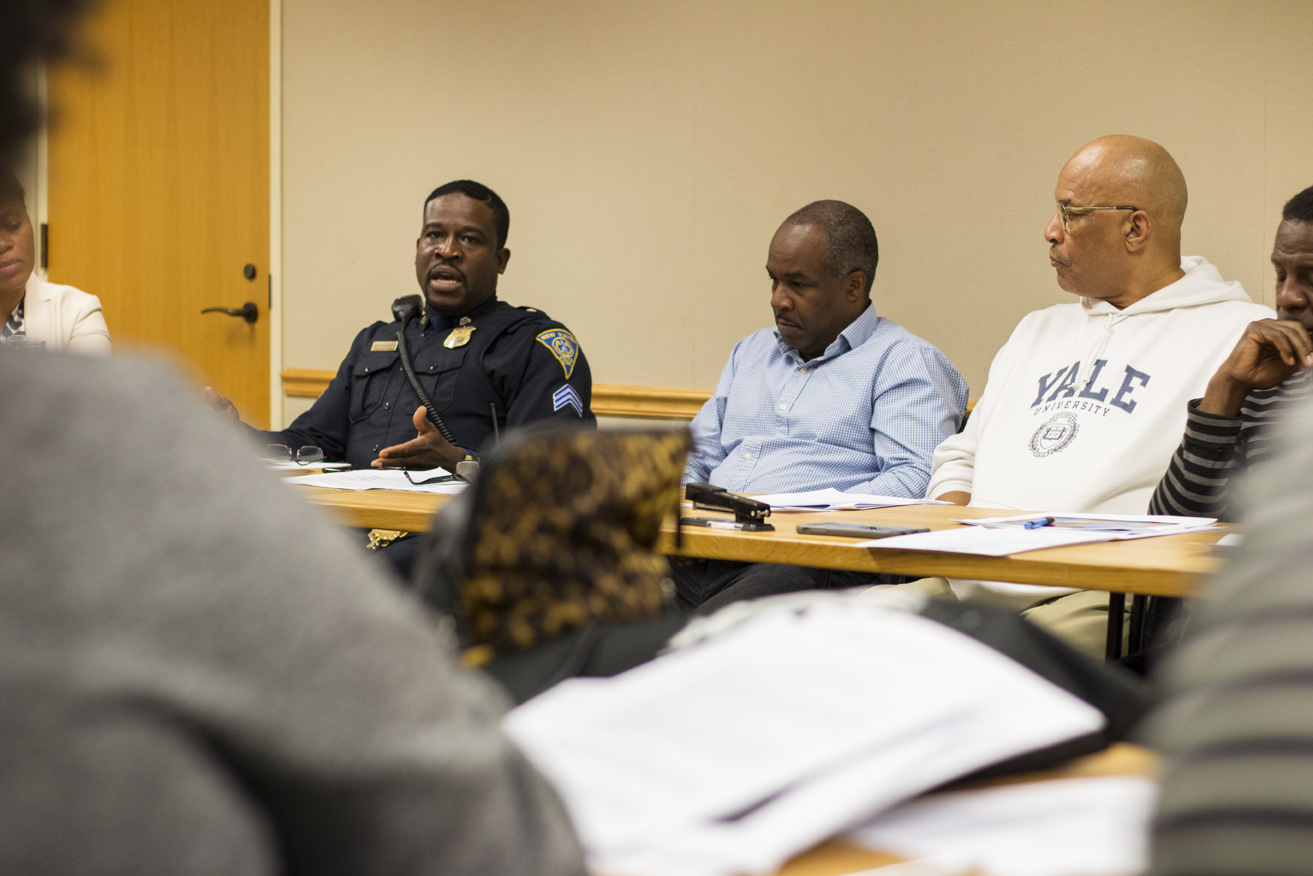
This fall, the New Haven Police Department recruited its most diverse class in the last five years, as more than half of its new trainees are black or Hispanic.
On Oct. 3, Mayor Toni Harp swore in 32 members of this year’s second recruit class for the New Haven Police Academy. Of the 30 who are training to become officers in New Haven, four are black women and five are black men. The group is also comprised of one Asian man and nine Hispanic men, with the rest being white men, said NHPD spokesman David Hartman.
Every year, the police department aims to fill a class that reflects the demographics of New Haven by recruiting across the city, Hartman added.
“Recruiting is pointed,” Hartm an said. “When you go to recruit, the audiences you try to get are pointed. Our recruiters go to inner city events and schools.”
He added that nine of the recruits are from New Haven, a figure higher this year than in previous ones. Eight locals joined the class in 2015, and six joined in 2013, according to a NHPD press release.
This measure is even more important than race, as those from the city are more familiar with the communities they serve, Hartman said, adding that the department would give preference to locals.
“I’m going to be a better cop if I’m policing the community I care about,” he said.
It is a “difficult time” to be a police officer, which has made recruitment especially challenging, Hartman said. He added that fewer people want to become police officers, giving the NHPD a more limited pool of recruits.
“There’s a balance,” Hartman said of recruitment. “We can’t say ‘No, we’re not going to accept you because you are a white male,’ because he may be very qualified.”
For months, community leaders and city officials have discussed how to increase the NHPD’s diversity and build better relationships between police officers and New Haven residents. Dori Dumas, the president of the local branch of the National Association for the Advancement of Colored People, said her organization has been part of Mayor Toni Harp’s police task force on police-community relations for nearly two years. Her group’s representatives have been meeting with the task force at least once a month.
“The NAACP wants the New Haven Police Department and other departments to reflect what the residents look like,” Dumas said.
She added that the people in a community should feel comfortable with the police officers who serve it, and vice versa.
The mayor’s task force is moving in the right direction, Dumas said, noting that in recent years, the NHPD has been more open to discussing issues of inclusivity, and has worked to increase the diversity of its recruiting classes. But the work is far from over, she said.
“We are happy with the steps that [the task force] is taking,” Dumas said. “We want to see more of it. We are not satisfied because it is not where it needs to be and we will continue to monitor it and work with the city and with the mayor and with the police chief to ensure that it happens.”
Jane Mills, a representative of the local social justice organization People Against Injustice, said diversifying the police force is crucial because it brings cultural understanding to the department. But Mills added that simply increasing the diversity of recruited classes will not adequately strengthen community relations. Greater trust between officers and residents requires increased police accountability and transparency, she said.
“The focus on increased community relations by police departments around the country is a way to dodge the bullet,” Mills said.
According to Hartman, the new recruits will be trained in the police academy for seven months, and then will complete three months of field training. Few recruits fail to become officers after having completed their instruction, he said.
The new recruit class is expected to graduate in May 2017.
Amy Cheng contributed reporting.







